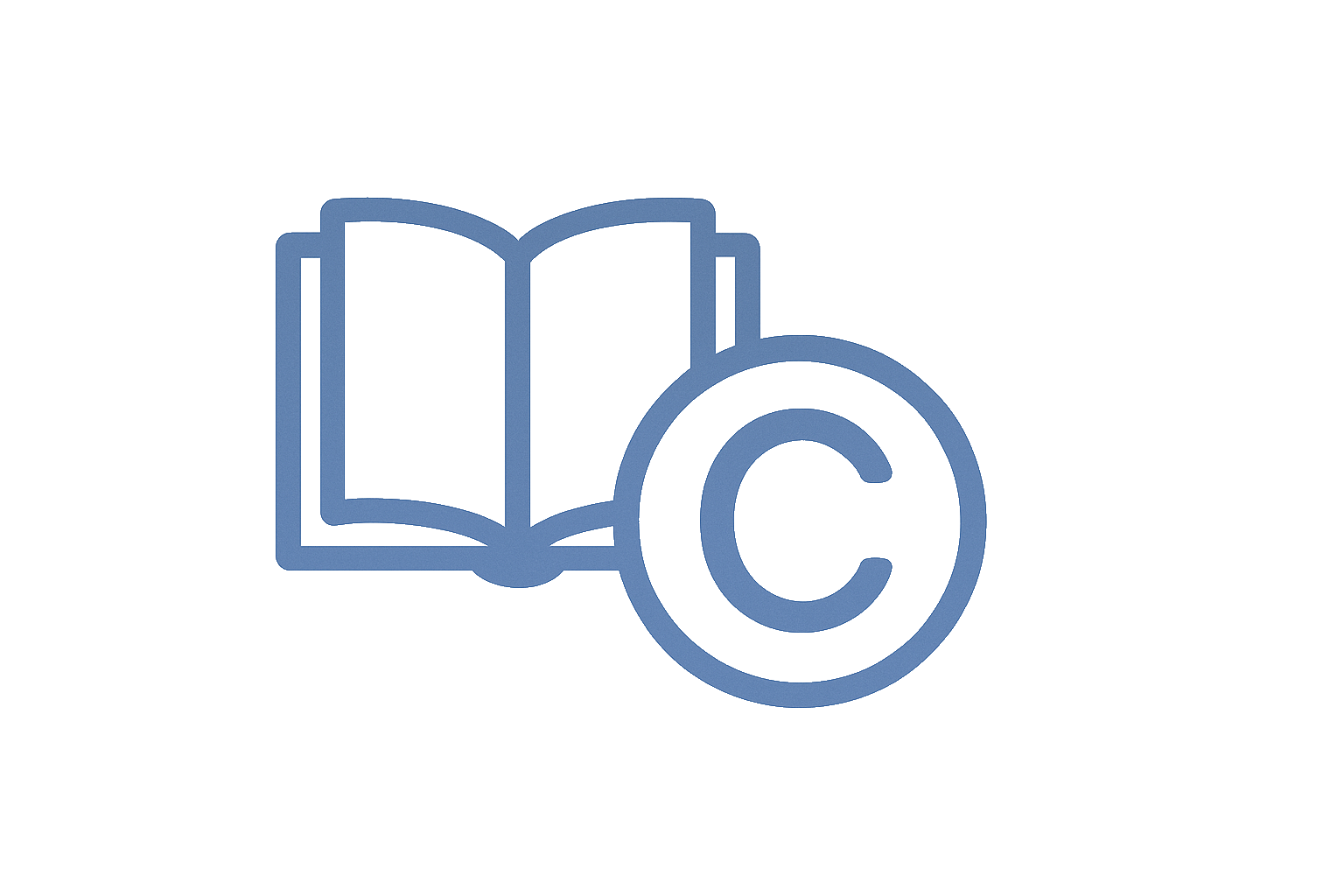📌 Quick Summary
1-Sentence Answer
Copyright registration in the U.S. typically takes about 3 months, starting from the date your completed application and payment are received by the U.S. Copyright Office.
The Article Overview
This article unpacks the copyright registration process from start to finish, outlines typical wait times, offers strategies for speeding things up, and explores common myths, legal cases, and business examples to better understand the U.S. copyright system.
❓ Common Questions & Answers
Q1: Is my work protected by copyright before I register it?
Yes! Copyright exists the moment your original work is fixed in a tangible form—it’s just not enforceable in court without registration.
Q2: Why should I register my copyright if it’s already protected?
Registration gives you legal standing to sue for infringement and allows you to claim statutory damages and attorney’s fees.
Q3: How long does it usually take to get a certificate?
Typically, about 3 months. Some complex applications can take longer—especially if submitted by mail.
Q4: Can I expedite the copyright process?
Yes, in limited cases (e.g., pending litigation), you can request “Special Handling” for a $800 fee.
Q5: Do I get protection internationally once I register in the U.S.?
Yes, to an extent. The U.S. is part of the Berne Convention, which offers some global protection, but it's not a one-size-fits-all solution.
📜 Step-by-Step Guide
Step 1: Create the Work
Your original work must be “fixed” in a tangible medium—written down, recorded, typed up, etc.
Step 2: Visit copyright.gov
Start the registration process online. Create an account if you don’t already have one.
Step 3: Complete the Application
Fill out the online form, specifying your work type, author info, and any co-creators.
Step 4: Pay the Fee
Fees range from $45–$65 for standard works, more if expedited or involving multiple authors.
Step 5: Upload or Mail in the Work
Submit a digital copy or physical deposit as required.
Step 6: Wait for Review
Your application is reviewed by an examiner at the U.S. Copyright Office—usually takes ~3 months.
Step 7: Receive Your Certificate
Once approved, you’ll get a digital or mailed certificate—your official proof of copyright!
📖 Historical Context
Copyright law in the United States dates back to the Constitution, which empowered Congress to "promote the progress of science and useful arts." The first federal copyright law, enacted in 1790, protected maps, books, and charts for 14 years.
In 1976, a major overhaul gave us the framework we largely follow today. This Copyright Act extended the term of protection and emphasized automatic protection the moment a work is fixed in a tangible medium. Registration, while optional, became vital for legal enforcement.
Today’s digital landscape has made copyright more critical than ever. From memes to mobile apps, more people are creating—and registering—intellectual property. The Copyright Office has modernized with online portals, but processing time still hovers around 3 months due to review backlogs and the sheer volume of filings.
🏢 Business Competition Examples
1. Disney vs. Redbubble
Disney sued Redbubble for unauthorized use of copyrighted characters on merchandise. Disney’s registered copyrights gave it a solid legal standing.
2. Shepard Fairey (Obama “Hope” Poster)
Fairey was sued by the AP over photo usage. Both parties had copyright claims—registration played a key role in arguments.
3. Blizzard vs. Cheat Developers
Blizzard protected its game “Overwatch” via copyright. Legal action was swift thanks to prior registrations.
4. Taylor Swift
Swift registers lyrics, music, and branding with precision. It gives her leverage when others attempt unauthorized use.
💬 Discussion Section
The 3-month average wait time might sound like a bureaucratic delay, but it reflects the Copyright Office's responsibility to review a wide range of submissions—from novels and screenplays to software and architectural plans.
Some people mistake copyright registration as a mere formality. But without it, legal enforcement becomes much harder. Registered works enjoy extra benefits: they become part of the public record, unlock statutory damages, and allow creators to sue in federal court.
If you're self-publishing a book or sharing art online, registration should be considered insurance. It’s cheap, straightforward, and offers powerful protections. Businesses, especially those in creative industries, often build entire IP portfolios based on copyrights—from jingles to software GUIs.
Some savvy creators time their registration with product launches to ensure protection from the get-go. Others do it retroactively, often after someone tries to steal or copy their work.
With 600,000+ copyright applications filed each year in the U.S., the backlog is understandable. That said, staying ahead of the curve—by understanding the timeline and your rights—gives you the best shot at defending your creative efforts.
⚖️ The Debate
Pro-Registration Viewpoint:
Copyright registration provides creators with critical legal tools like statutory damages, legal presumption of ownership, and eligibility for federal lawsuits. It’s a must-have for serious creators.
Skeptical Viewpoint:
Some argue registration is redundant since copyright is automatic. For small creators, especially hobbyists, the fee and time might not be worth it unless infringement is likely.
✅ Key Takeaways
-
Copyright exists automatically when you create a work—but registration unlocks enforcement.
-
The average wait for registration is around 3 months.
-
Online filing is faster than mail and more efficient.
-
Expedited service exists, but it's costly and limited.
-
Registration is essential for lawsuits and statutory damages.
⚠️ Potential Business Hazards
-
Delayed Registration: Waiting too long can limit your legal options if infringement occurs early.
-
Incorrect Filing: Errors in your application can delay approval or weaken your claim.
-
Relying Only on Automatic Protection: Without registration, your rights are much harder to defend in court.
-
Failure to Monitor Use: Even with registration, you must monitor your content and act if infringement occurs.
❌ Myths & Misconceptions
-
“I don’t need to register because I emailed it to myself.”
Sorry, that’s not legally valid in court—registration is. -
“My work is online, so it’s automatically protected.”
While technically true, only registration gives you legal clout. -
“It costs thousands to register.”
Nope! It’s under $100 for most applications. -
“You need a lawyer to register.”
Not necessarily! You can do it yourself at copyright.gov.
📚 Book & Podcast Recommendations
-
Book: Copyright Law: Essential Cases and Materials
https://www.cambridge.org/us/academic/subjects/law/intellectual-property -
Podcast: The Legal Tee
https://thelegaltee.buzzsprout.com -
Book: Steal Like an Artist by Austin Kleon
https://austinkleon.com/steal/ -
Podcast: Creative Elements
https://www.creativeelements.fm
⚖️ Legal Cases
-
Disney Enterprises, Inc. v. Redbubble Inc.
https://casetext.com/case/disney-enterprises-inc-v-redbubble-inc
Disney’s registration gave it a decisive edge. -
Blizzard Entertainment v. Bossland GmbH
https://casetext.com/case/blizzard-entmt-v-bossland-gmbh
Copyrighted game code protected Blizzard from cheat developers. -
Andreas v. Volkswagen of America
https://casetext.com/case/andreas-v-volkswagen-of-america-inc
An artist won damages after their registered work was used in a TV ad. -
Feist Publications, Inc. v. Rural Telephone Service Co.
https://supreme.justia.com/cases/federal/us/499/340/
Clarified what qualifies as an “original work” under copyright law.
📣 Expert Invitation
Got questions about registering your masterpiece? Ready to protect your work with expert help?
👉 Visit http://inventiveunicorn.com to schedule a free strategy session with our IP attorneys. Your creative work deserves the protection it needs—without the confusion.
🔚 Wrap-Up Conclusion
From novels to napkin sketches, your creative work is worth protecting. Copyright registration may not be instant, but its benefits far outweigh the short wait. A few months of patience today could save you years of headache tomorrow.











